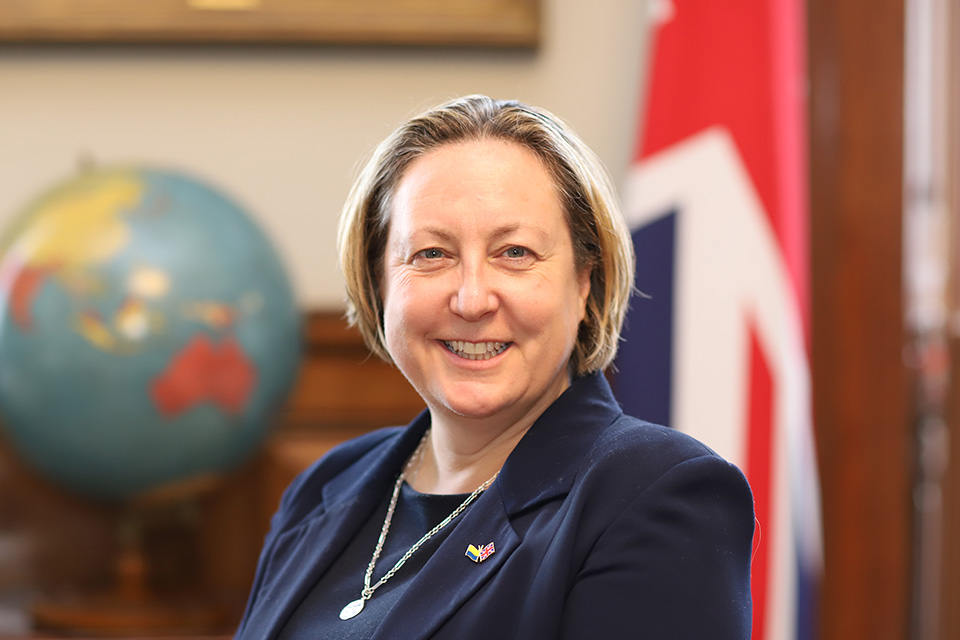Minister Anne-Marie Trevelyan addresses International Women's Day event
International Champion on Adaptation and Resilience delivers keynote speech at COP26 event, 'Climate Action and Gender Equality: Can We Close One Gap Without the Other?'

Thank you, Renata for that kind introduction, to our esteemed panellists, and to you, our audience, for joining our important discussion today on gender equality and climate change.
As the COP26 Adaptation & Resilience Champion, I have met with some amazing female activists, advocates and leaders to hear their views and ideas about how we can ensure that gender is at the centre of our efforts to adapt and build resilience.
This is essential, because historically marginalised groups are, indisputably and primarily as a result of wider discrimination, socio-cultural barriers, and inequality, more vulnerable to those climate impacts.
This includes but is not limited to those living in poverty, people with disabilities, youth, indigenous peoples, and of course, women and girls.
Women and children are significantly more likely than men to die during climate-related disasters, and they comprise up to 80% of those displaced by natural disasters.
Women constitute more of the world’s poor and are often directly dependent on threatened environmental resources as their primary source of food and income.
Women often don’t have the same access to other resources - such as education, information, land and credit - that would help them to respond to a changing climate.
And climate change also worsens existing inequalities, increasing gender-based violence and the exploitation of women and girls, particularly for the most marginalised.
Around 12 million more young girls are thought to have been married off as the frequency of natural disasters has increased.
It also impacts girls’ education, as after natural disasters, girls are often the first to drop out of school to help their families.
It could be easy, in light of this incontrovertible evidence, to paint a picture of women and girls, as mere victims of climate change.
However, we know, and the panellists here today can attest to the fact that women and girls - as educators, decision makers and advocates, at all levels - are critical in the fight against the climate crisis.
When we take action to confront climate change, in our communities, in our countries and organisations, we should, of course, be mindful of the ways in which climate change affects men and women differently.
And we should work to actively promote gender equality and to empower women and girls.
Their insights and experiences are invaluable if we are to find the right solutions. We must therefore do all we can to amplify their voices.
This will not only improve gender equality, but it will also lead to more sustainable, better outcomes for the climate and our societies.
140 million years of productivity are lost annually because of the hours that women and girls spend using slower, more polluting cooking methods. Just try and get your heads around that statistic.
By investing in clean cooking solutions, emissions will be reduced, and girls will have more time to pursue education.
There is also evidence of better outcomes when women are brought into adaptation and resilience action.
Lower death rates following on from hurricanes in Central America, for example, have been ascribed to women’s involvement in preparedness education.
So through our Presidency of COP26, we will deliver on the Gender Action Plan agreed by all countries at the last COP.
For us, this means committing to integrating gender equality and inclusion into climate action, and enabling women, girls and marginalised peoples to be a critical part of the fight.
And I see this is an essential part of my role.
I am committed to ensuring that our adaptation action is gender-responsive.
Without actively addressing the unequal power dynamics that drive vulnerability - including gender inequality - adaptation efforts risk failing to reach their core objectives, or even further exacerbating marginalisation and climate vulnerability.
So the UK has also supported women’s empowerment and leadership within our clean energy sector, investing in women’s skills and setting specific targets for diversity and gender equality.
Prioritising gender equality in our mitigation work will help us deliver net zero by 2050.
And we know that education of girls goes hand in hand with their empowerment.
So we have set an ambitious global target to get 40 million more girls into school.
Ensuring 12 years of quality education for girls will support girls, their families and their communities to be more resilient in the face of those climate shocks.
And we also see gender as a key part of our work on climate finance.
And we’ve worked to fund efforts to integrate gender and social inclusion into climate change planning and budgeting processes.
Because climate finance can only be effective if it gets to the people who need it most.
All of this is why I’ve convened this group of experts and advocates here today.
We look forward to learning from your experiences integrating gender equality for better climate outcomes.
We want to know what challenges you faced and how you overcame them.
Our panellists have led inspirational work in this area, both internationally and here in the UK.
Whether that’s through a project working to embed gender into international climate programming, or by ensuring climate finance reaches grassroots communities.
Let’s learn from them today and resolve to apply their lessons to our own work.
After all, now is the time to close the gap on both gender equality and climate action.
Thank you Renata.